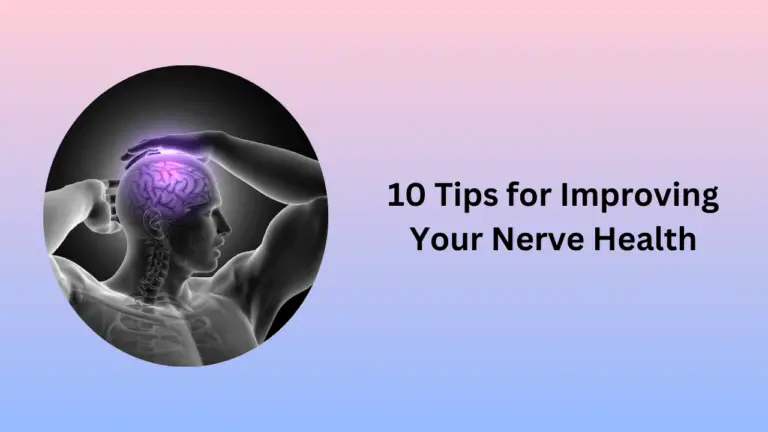Millions of individuals across the world suffer from the common hearing disease known as tinnitus. It might be intermittent or persistent, but it is characterized by the sensation of ringing, buzzing, or humming in the ears. We’ll look at the reasons for tinnitus and some all-natural treatments in this article to help you manage it.
Table of Contents
ToggleWhat is Tinnitus?

An ear disorder known as tinnitus makes people hear ringing, buzzing, hissing, or other sounds in their ears. These sounds originate inside a person’s head or ear, not from any outside source. One or both ears may be affected by tinnitus, which can be brief or chronic.
How is Tinnitus Diagnosed?
A diagnosis of tinnitus is usually made through a physical examination and a review of a patient’s medical history. If the cause of tinnitus is suspected to be related to an underlying condition, additional tests may be required including hearing tests, imaging tests, and blood tests.
Types of Tinnitus

Tinnitus comes in two flavors: subjective and objective. The most prevalent variety, subjective tinnitus, is brought on by problems with the inner ear. An uncommon type of tinnitus called “objective tinnitus” is brought on by outside stimuli that cause noise to enter the ear canal.
Subjective Tinnitus
The type of tinnitus that occurs most frequently is subjective. Damage to the auditory nerve or inner ear is frequently linked to it. Frequently, the affected person hears a phantom sound that nobody else can hear. Treatment for this kind of tinnitus is more difficult than for objective tinnitus.
Causes
The most common causes of subjective tinnitus are:
- Exposure to loud noise
- Aging
- Head or neck injuries
- Earwax buildup
- Ototoxic drugs
- Infections
- Stress and anxiety
- High blood pressure
- Temporomandibular joint (TMJ) disorders
- Meniere’s disease
Natural Cures
Although subjective tinnitus cannot be cured, several herbal treatments can lessen its symptoms. These consist of:
- Using white noise machines or fans to mask the sound of tinnitus
- Participating in relaxation practices such as yoga or meditation
- Consuming magnesium supplements or foods that are high in magnesium
- Eating a healthy diet that includes anti-inflammatory foods
- Avoiding caffeine, nicotine, and alcohol
- Acupuncture
Objective Tinnitus
One uncommon type of tinnitus that is audible to both the sufferer and others is called objective tinnitus. It frequently goes hand in hand with a physical issue, including faulty blood vessel development or aberrant muscle contractions.
Causes
The following are the most common causes of objective tinnitus:
- Abnormal blood flow to the ear
- Ear infections
- Muscle spasms in the ear
- Tumors in the ear
Natural Cures
Objective tinnitus is more difficult to treat since it is a symptom of an underlying medical issue. However, some organic treatments can lessen its signs and symptoms. These consist of:
- Practicing relaxation techniques, such as yoga or meditation
- Consuming anti-inflammatory foods
- Avoiding caffeine, nicotine, and alcohol
- Acupuncture
Common Causes of Tinnitus

Hearing Loss
Hearing loss is the most typical cause of tinnitus. This can happen due to aging, exposure to loud noise, ear infections, and other reasons. When the inner ear’s hair cells are damaged or destroyed, the brain receives mixed signals which can lead to tinnitus. Regular hearing tests can help identify this condition early on.
Exposure to Loud Noise
Loud noise can damage the ears and cause tinnitus. Tinnitus is more likely to affect musicians, manufacturing workers, and other people who work in noisy situations. Tinnitus brought on by noise can be avoided by using earplugs or earmuffs.
Ear Infections
Ear infections can lead to tinnitus. An infection in the middle ear can cause inflammation and pressure changes that can affect the hearing nerves. It is important to treat ear infections promptly to avoid complications like tinnitus.
Earwax Build-Up
Earwax can accumulate in the ear canal, leading to blockages and hearing problems. This can cause tinnitus because it affects the sounds that reach the brain. It is vital to clean the ears carefully to prevent buildup.
High Blood Pressure
Tinnitus can result from high blood pressure damaging the blood vessels in the ear. People with high blood pressure should keep a constant eye on their condition and, if required, seek medical attention.
Medications
Tinnitus is a side effect that can be brought on by some drugs. This includes aspirin, NSAIDs, antidepressants, and others. Anyone experiencing tinnitus while taking medications should consult with their healthcare provider.
Stress and Anxiety
Stress and anxiety can worsen tinnitus symptoms. Deep breathing exercises, meditation, and yoga are all relaxation strategies that can lessen the impact of stress on tinnitus.
Head and Neck Injuries
Head and neck injuries can cause tinnitus in some instances. This is because the trauma can damage the inner ear, hearing nerves, or the brain’s auditory processing center. It is vital to receive proper care for any injury to prevent tinnitus from developing.
Natural Cures for Tinnitus

Many natural treatments for tinnitus symptoms may be helpful. These remedies include:
- Gingko Biloba – an herbal supplement that improves blood flow in the body and may help reduce tinnitus symptoms.
- In addition to promoting relaxation and reducing tension, essential oils like lavender and rosemary may also aid with tinnitus symptoms.
- Acupuncture is a form of traditional Chinese medicine in which needles are inserted into particular body sites to treat illness and relieve pain. Tinnitus symptoms can sometimes be improved by acupuncture, according to certain studies.
Lifestyle Changes to Manage Tinnitus

Certain lifestyle adjustments might help manage tinnitus symptoms in addition to natural cures. These include:
- Protecting Your Ears – Avoid loud noises, wearing earplugs or noise-canceling headphones when exposed to noise.
- Exercise – Regular exercise may help reduce stress and improve blood flow to the ear, helping to manage tinnitus symptoms.
- Managing Stress – Stress can exacerbate tinnitus symptoms, so finding ways to manage it, such as meditation or yoga, can be beneficial.
Conclusion
Tinnitus can be a difficult illness to manage, but with the right diagnosis and care, symptoms can be reduced and quality of life can be raised. In addition to medical treatment, natural cures, and lifestyle modifications should be investigated for the management of tinnitus. Speak with your doctor if you have tinnitus to learn about your treatment options.












Pingback: How to Improve Hearing: A Comprehensive Guide - nutrifyyou